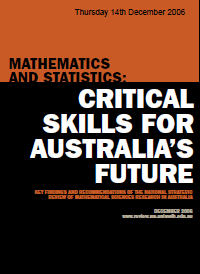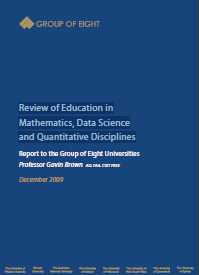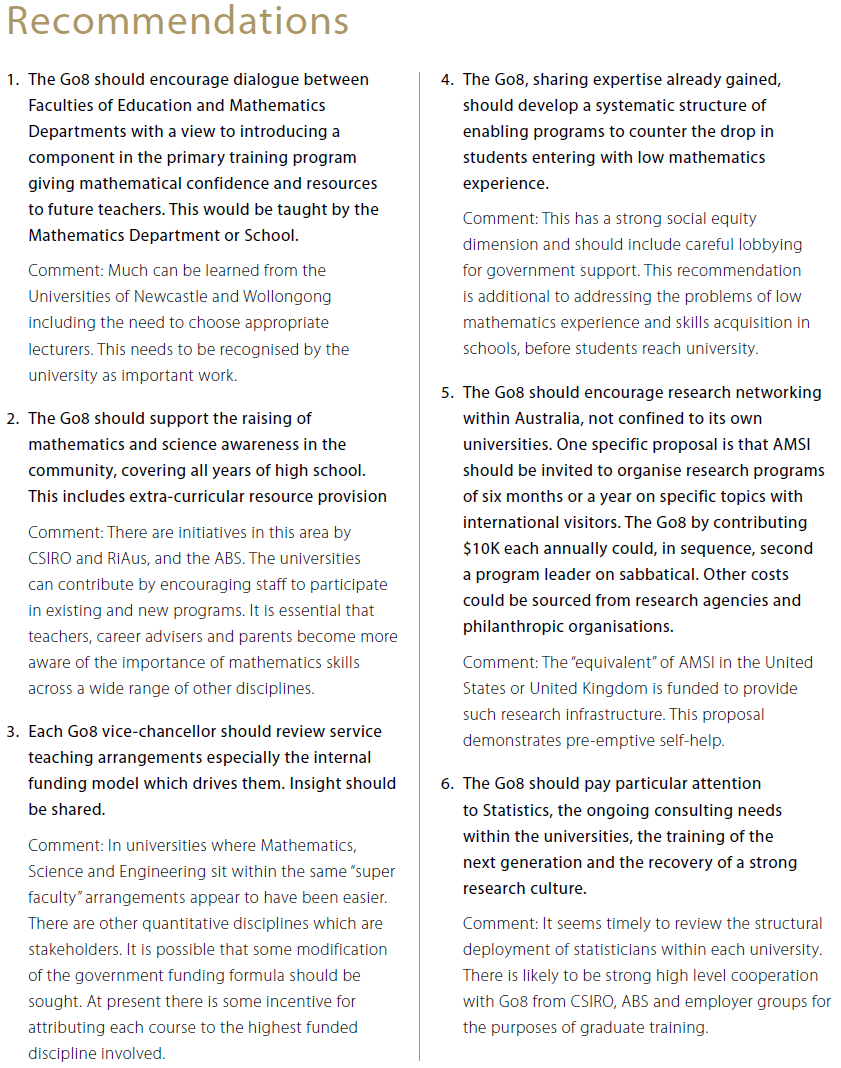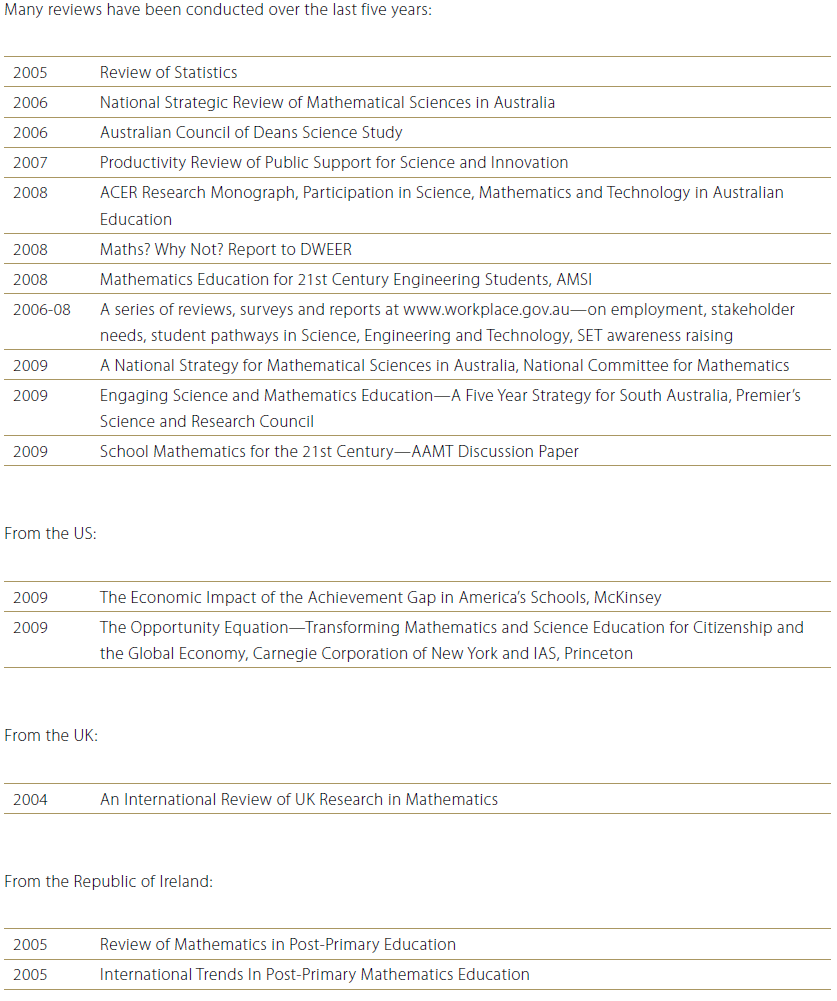|
|
|
|
|
|
|
News & Views item - March 2010 |
![]() For Maths It's Déjà Vu All Over Again. (March 15, 2010)
For Maths It's Déjà Vu All Over Again. (March 15, 2010)
 |
On March 10, 2010 the Group of Eight universities released its Review of
Education in Mathematics, Data Science and Quantitative Disciplines.
Chaired by mathematician and the former vice-chancellor of The University of Sydney Gavin Brown, the short
(fourteen paged) document concluded "universities cannot ignore the downward
change in mathematics preparedness affecting entering students. In the short
term there appear to be only two conceivable responses: the provision of
enabling (i.e. remedial) programs and the lowering of standards," which on the
face of it looks to be placing it on a luge racing toward downward disaster.
former vice-chancellor of The University of Sydney Gavin Brown, the short
(fourteen paged) document concluded "universities cannot ignore the downward
change in mathematics preparedness affecting entering students. In the short
term there appear to be only two conceivable responses: the provision of
enabling (i.e. remedial) programs and the lowering of standards," which on the
face of it looks to be placing it on a luge racing toward downward disaster.
Over the past week the review garnered significant media coverage by the ABC, The Australian, The Sydney Morning Herald, to name a few.
The ABC noted: A new report says the state of maths in Australian schools has deteriorated to a "dangerous level" and will require universities to lower standards and provide remedial programs to help under-prepared students. and The CSIRO says it hopes to tackle the deterioration of mathematics in Australian education... announcing several initiatives hoping to attract people to the professional level of mathematics including a graduate program.
The Australian's HES wrote: The state of maths and science at Australian schools and universities has deteriorated to a "dangerous level", the nation's top mathematicians have warned... The number of students enrolled in a maths major at Australian universities declined by 15 per cent between 2001 and 2007. And Nalini Joshi, associate head of the University of Sydney's school of mathematics and statistics and president of the Australian Mathematical Society, told the HES that the decline in the number of qualified maths teachers is a "looming disaster" for Australia, and went on to say:
This problem is part of a vicious cycle. The decline in numbers of qualified teachers means a decline in the number of students who are inspired to take advanced mathematics courses at high school. In turn, this means there are fewer people entering university who are able to take quantitative and scientific courses that require a mathematical background. This leads to fewer graduates who are interested in teaching mathematics or qualified to do so. So the decline in teacher numbers deepens with each year that passes.
Professor Geoff Prince, director of the Australian Mathematical Sciences Institute, told The Australian: "What is needed now is a call to government to put in place a set of measures, not just isolated measures, to deal with the problems in mathematics and statistics," while Dr Louise Ryan, the chief of CSIRO Mathematics, Informatics and Statistics, told The Sydney Morning Herald that mathematics evolved as the language of science, and is essential background for any quantitative-based research. A solid footing in maths is grounding not only for careers at CSIRO or the Bureau of Statistics, but is integral to Australia's continuing competitiveness in engineering, technological research and development, environmental and health sciences, geography, meteorology, economics, banking, finance and risk assessment.
But what was noticeably absent was any reference to the review by the Prime Minister, Kevin Rudd, the Minister for Education and Deputy Prime Minister, Julia Gillard, the Minister of Innovation, Industry, Science and Research, Senator Kim Carr, the leader of the Liberal opposition, Tony Abbott, the leader of the Greens, Dr Bob Brown, or even Australia's Chief Scientist, Professor Penny Sackett.
As one well connected researcher told TFW: "I feel they see it as an irrelevance".
Below is a copy of the six recommendations that Professor Brown and his Reference Committee have made, followed by a listing of previous reviews noted by it.

________________________________________________
